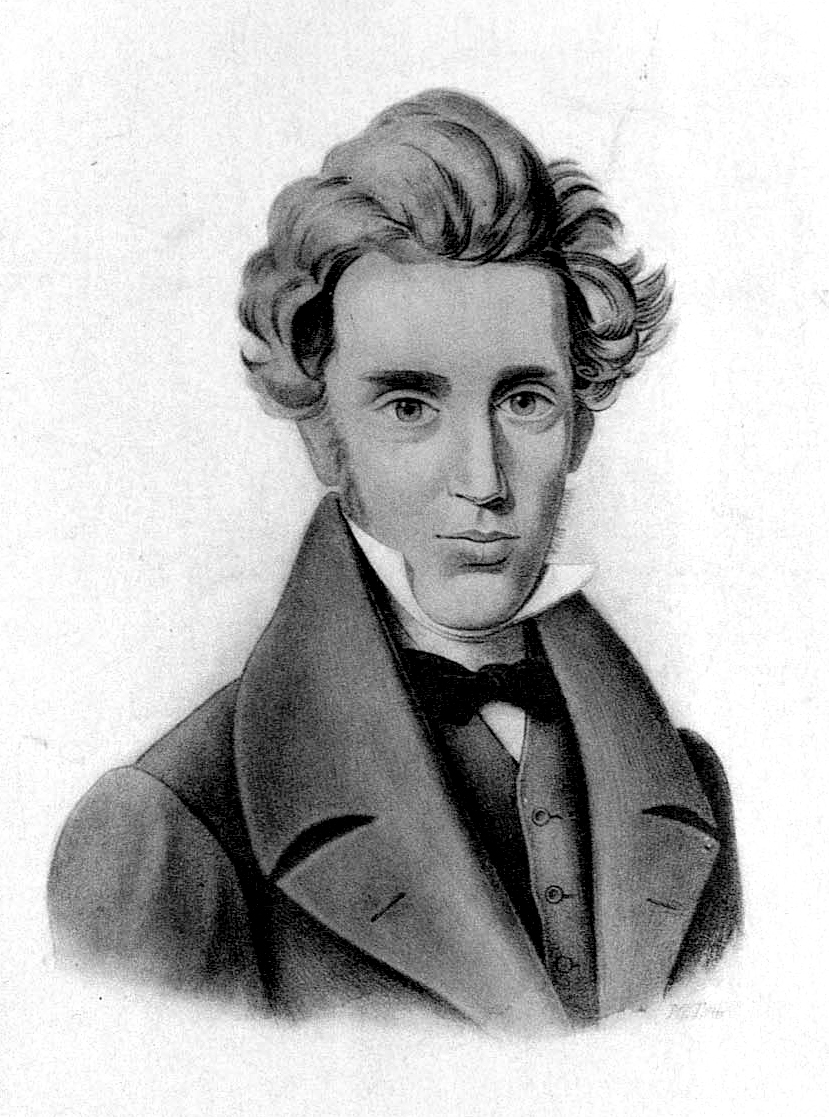Kierkegaard, Søren Aabye, << KEER kuh gahrd or KIHR kuh gawr, SUR uhn AW boo >> (1813-1855), a Danish philosopher and religious thinker, is considered one of the founders of existentialism. He has greatly influenced religious thought, philosophy, and literature. His many books are concerned with the nature of religious faith. More specifically, he was interested in the problem of what it means to be a true Christian.
His philosophy.
Kierkegaard held that religious faith is irrational. He argued that religious beliefs cannot be supported by rational argument, for true faith involves accepting what is “absurd.” He insisted on the absurdity or logical impossibility of the Christian belief that God, who is infinite and immortal, was born as Jesus Christ, who was finite and mortal.

Kierkegaard cited another example of the absurdity of religion in Genesis 22, where God commands Abraham, for no apparent reason, to kill his only son, Isaac. Kierkegaard found this story of God’s unreasonableness so fascinating and important that he wrote an entire book about it, Fear and Trembling (1843). He argued that God requires us to hold beliefs and perform actions that are ridiculous and immoral by rational standards. Because Abraham had obeyed God’s outrageous commands without trying to understand or justify them, he was Kierkegaard’s religious ideal, “the knight of faith.”
In Concluding Unscientific Postscript (1846), Kierkegaard argued that nobody can attain religious faith by an objective examination of the evidence but only by a subjective choice, “a leap of faith.” Furthermore, the amount of objective evidence supporting a belief does not make the belief genuine or true. Rather, true belief is measured by the sincerity and passion of the believer. He concluded that in religion “truth is subjectivity.”
Kierkegaard bitterly criticized all attempts to make religion rational. He held that God wants us to obey Him, not to argue for Him. Kierkegaard regarded those who offered rational proofs for religion as having “betrayed religion with a Judas kiss.”
Kierkegaard became convinced that many people who were officially Christian and who considered themselves Christians did not possess the unconditional faith demanded by Christianity. He often attacked the Evangelical Lutheran Church of Denmark, saying its membership no longer included any true Christians.
His life.
Kierkegaard was born on May 5, 1813, and lived almost his entire life in Copenhagen. He was usually so busy with his writing that he rarely invited people to his house. But he took long and frequent walks, talking with everyone he met. When he was 22, he learned that his father, as a poor youth, had once cursed God and that his father had seduced his mother before marrying her. These revelations disturbed Kierkegaard so much that he referred to them in his writings as “the great earthquake.”
In 1840, Kierkegaard became engaged to a 17-year-old girl, Regina Olson, but he broke off the engagement after about a year. Their affair continued to haunt Kierkegaard throughout his life, and in his writings he frequently attempted to explain and justify his behavior toward her. In Fear and Trembling, he suggested that he had to sacrifice his beloved Regina for religious reasons, just as Abraham had to sacrifice his beloved Isaac because of God’s command. Kierkegaard died on Nov. 11, 1855.
